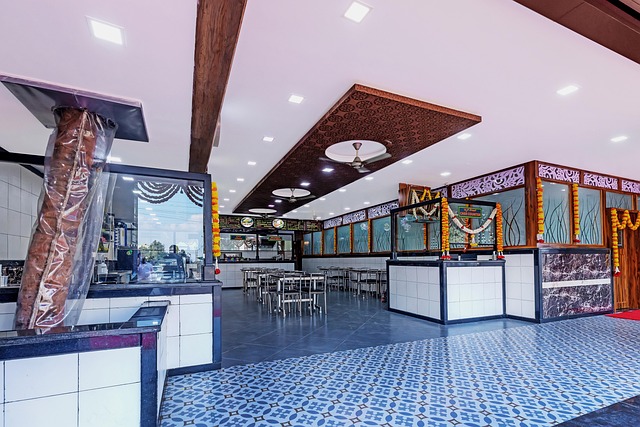A kitchen remodel focused on eco-friendly living involves key steps like prioritizing insulation for temperature regulation and installing energy-efficient appliances. Incorporate recycled materials to minimize environmental impact while enhancing natural charm. Choose green kitchen design elements, such as low-flow faucets and smart thermostats, for optimal utility savings. Strategic heat transfer reduction through insulation and sustainable materials ensures long-term energy efficiency and contributes to broader environmental goals.
Ensuring proper insulation is a key component of creating an eco-friendly kitchen through a sustainable kitchen renovation. This guide explores how energy-efficient kitchen appliances and smart insulation techniques can significantly enhance your home’s green design, contributing to a more sustainable lifestyle. Discover creative ways to reduce heat transfer, the importance of recycled materials for kitchens, and essential tips for maintaining optimal insulation after installation. Implement these strategies in your kitchen remodel for eco-friendly living and unlock efficient, environmentally-friendly kitchen ideas.
Understanding the Importance of Insulation for Eco-Friendly Kitchens
In the pursuit of a kitchen remodel aimed at eco-friendly living, proper insulation plays a pivotal role in achieving energy efficiency. A sustainable kitchen renovation isn’t just about choosing green kitchen design elements; it involves creating a well-sealed, insulated space that minimizes heat transfer. This is crucial for both heating and cooling systems, ensuring energy-efficient kitchen appliances perform optimally while reducing utility costs. Incorporating recycled materials for kitchens can significantly contribute to an environmentally-friendly kitchen idea, as it not only cuts down on waste but also adds a unique, natural charm.
When considering eco-friendly kitchen upgrades, remember that insulation is the first line of defense against temperature fluctuations. Upgrading to energy-efficient kitchen appliances is commendable, but proper insulation ensures these appliances don’t have to work overtime to maintain ideal temperatures. This not only saves money but also promotes a greener lifestyle by reducing overall energy consumption.
Incorporating Energy-Efficient Appliances in Your Kitchen Remodel
When planning a kitchen remodel with eco-friendly living in mind, incorporating energy-efficient appliances is a key step towards a sustainable kitchen renovation. These appliances are designed to reduce power consumption significantly, contributing to a greener kitchen and lower utility bills. Opting for models with high Energy Star ratings ensures maximum efficiency; these appliances use advanced technologies like heat-pump technology or improved insulation to keep food fresh while minimizing energy waste.
A green kitchen design doesn’t stop at efficient appliances; consider using recycled materials as well. Recycled stainless steel, glass, and wood not only reduce the environmental impact of your remodel but also add a unique, earthy charm to your space. Eco-friendly kitchen upgrades extend beyond appliances too—choose low-flow faucets, energy-efficient lighting, and smart thermostats that learn your habits for further optimization. These thoughtful selections collectively transform your kitchen into an environmentally-friendly hub, reflecting your commitment to sustainable living.
Green Materials: Sustainable Choices for Your Kitchen Renovation
When planning a kitchen remodel aimed at eco-friendly living, one key consideration is selecting sustainable materials that minimize environmental impact. Green kitchen design encompasses using recycled materials for countertops, flooring, and cabinets, reducing waste and promoting a circular economy. Opting for environmentally-friendly kitchen ideas doesn’t just benefit the planet; it can also enhance your space’s aesthetic appeal and potential resale value.
Sustainable kitchen renovation includes integrating energy-efficient kitchen appliances that reduce electricity consumption. Recycled materials for kitchens, such as bamboo countertops or reclaimed wood flooring, not only look beautiful but also contribute to a reduced carbon footprint. These choices align with the growing trend of green kitchen design, offering practical and stylish solutions for those seeking to embrace eco-friendly living in their homes.
Creative Ways to Reduce Heat Transfer and Improve Efficiency
In a kitchen remodel for eco-friendly living, one often overlooked area for improvement is heat transfer. Creative ways to reduce this and boost efficiency can significantly impact your home’s overall energy savings. Sustainable kitchen renovation doesn’t just mean choosing energy-efficient kitchen appliances; it also involves strategic design choices. For instance, using recycled materials for kitchen countertops or flooring can help insulate the space naturally, minimizing temperature fluctuations.
Consider incorporating green kitchen design elements like a well-placed island or custom cabinetry that acts as a thermal barrier. These additions can slow down heat transfer between rooms, keeping your kitchen cooler in summer and warmer in winter with less energy input. Embracing eco-friendly kitchen upgrades such as these not only enhances the efficiency of your space but also aligns with broader environmental goals, making your home a beacon of environmentally-friendly kitchen ideas.
Tips for Maintaining Optimal Insulation After Installation
Maintaining optimal insulation after installing energy-efficient heating and cooling systems is key to reaping long-term benefits for both your wallet and the environment. Start by regularly checking for any signs of damage or air leaks around windows, doors, and vents. Sealing these gaps with weatherstripping or caulk not only enhances insulation but also prevents unwanted moisture intrusion.
Consider incorporating green kitchen renovation ideas like using recycled materials for countertops and backsplashes to further reduce your environmental footprint. Upgrade to energy-efficient kitchen appliances that boast smart features promoting responsible usage. Additionally, explore eco-friendly kitchen designs focusing on natural lighting and proper ventilation, minimizing the need for artificial heating or cooling.
A successful kitchen remodel for eco-friendly living involves integrating green kitchen design principles and energy-efficient appliances. By utilizing recycled materials for kitchens and sustainable kitchen renovation techniques, you can significantly reduce your home’s carbon footprint. Creative ways to minimize heat transfer and improve efficiency, coupled with proper insulation maintenance, ensure that your kitchen is not just an environmentally-friendly space but also a haven of comfort and energy conservation. Embrace these eco-friendly kitchen upgrades to contribute to a healthier planet while enjoying a modern, functional kitchen.
